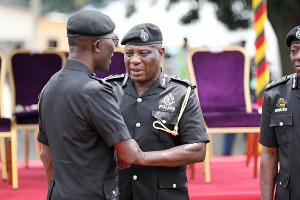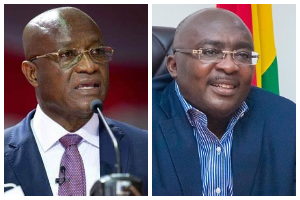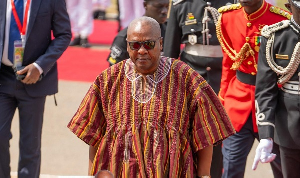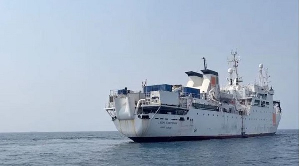The recent appointment of COP Yohuno as Deputy Inspector General of Police in charge of operations raised questions about constitutionality, intent, and timing. While the President has the power to appoint a Deputy Inspector General of Police ( DIGP), the added designation 'In charge of operations' creates an ambiguity and uncertainty about his role's scope and authority.
This evaluation analysis seeks to examine the implications of the constitutionality of the appointment, the intent, and the timing. It is an undeniable fact that COP Christian Tetteh Yohuno has a rich experience and solid knowledge base led policing ability to strengthen the command and control of the Police Service.
As a security, intelligence, and conflict analysts, and not a lawyer, with my basic knowledge of the law, believe that the C.I.76 intent was to have a single Deputy Inspector General of Police, but the appointment title creates a different role, potentially undermining the constitutional framework, and further exceed the powers granted by the constitution, which only authorized the appointment of Deputy Inspector of General Police (DIGP) without additional qualifications. This ambiguity and uncertainty can create confusion about the role's scope, authority, and responsibilities, leading to conflict and power struggling within the hierarchy of command and control structure, if not handle well, especially in the forthcoming 2024 election.
Analysing the intent of the appointment from the Political landscape by employing the perceptive analytical tool, the appointment in my candid evaluation is an ambush of power balance tactics as part of the governing party's strategy to gain advantage or control to exploit vulnerabilities within the Ghana Police Service and it operational structure to amass votes in the forthcoming election. This tactical move was properly masterminded to balance the power of the IGP by wisely appointing COP Christian Tetteh Yohuno, who is perceived as opposition-link senior police officer to restore hope among officers who like his nature and his leadership style to neutralize dissent created by the IGP within the police ranks.
This decision was taking after connecting many unfavourable dots of factors from both structural and circumstantial perceptives from classified, human, open and signal source of information, ranging from individual police complains of complete and relective deprivation in many contexts including promotions, grievances and upsets about the leadership style of Dr Dampare led administration. The defeat of the govering party's parliamentary bid at Assin North by-election, sensitive issues raised in the IGP leaked tape about the police are being treated, and the bipartisan committee chairman's refusal to sign the final report due to other allegations made against the IGP, which he believes will affect his government's votes fortune among police personnel, if nothing is done about it.
To tackle this critical development between the devil and the Red Sea, the government decided to test the pulses of the public domain on how they would welcome the news of IGP's removal after a fake release of presser but faced a huge negative reactions, which change the narrative at that moment. Realising how influence and powerful the Inspector General of Police (IGP) has become within the public domain, the government has to adopt the counter-balance of power approach to potentially undermine the IGP's authority to gain political leverage by creating a sense of obligation among opposing police officers marking it harder for them to criticise the government's actions.
On the issue of the timing of the appointment, it is important to state that strategically, it could have been better managed to minimise potential implications such as resource constraints, power struggling, short transition period should the opposition win. However, tactically, it is good for the police and Ghana at large, if only he will for go his personal interests and needs and uphold the country's collective interest to ensure peace, security, and stability before, during and after the forthcoming 2024 election.
Opinions of Tuesday, 23 July 2024
Columnist: Anthony Acquaye



















